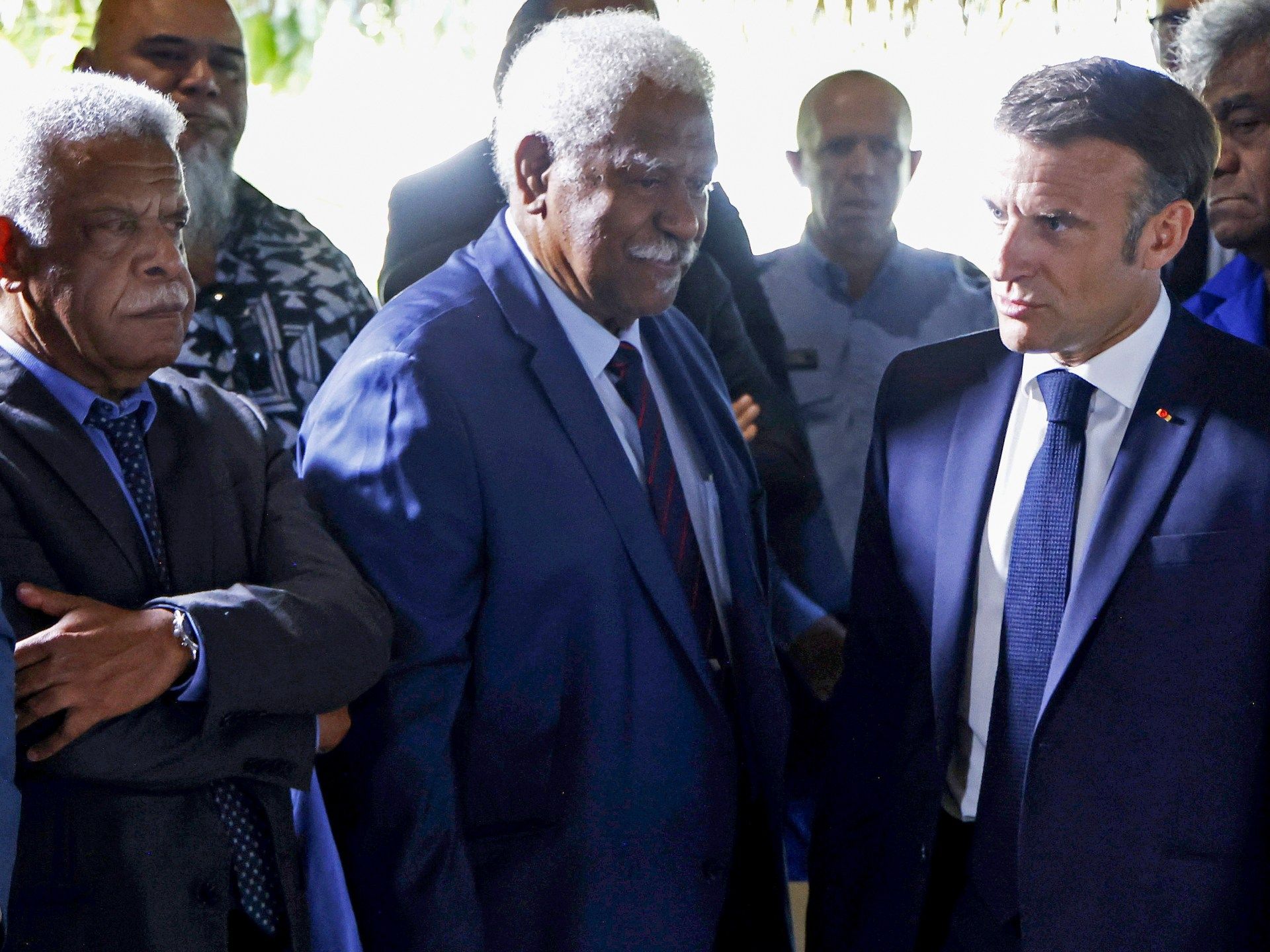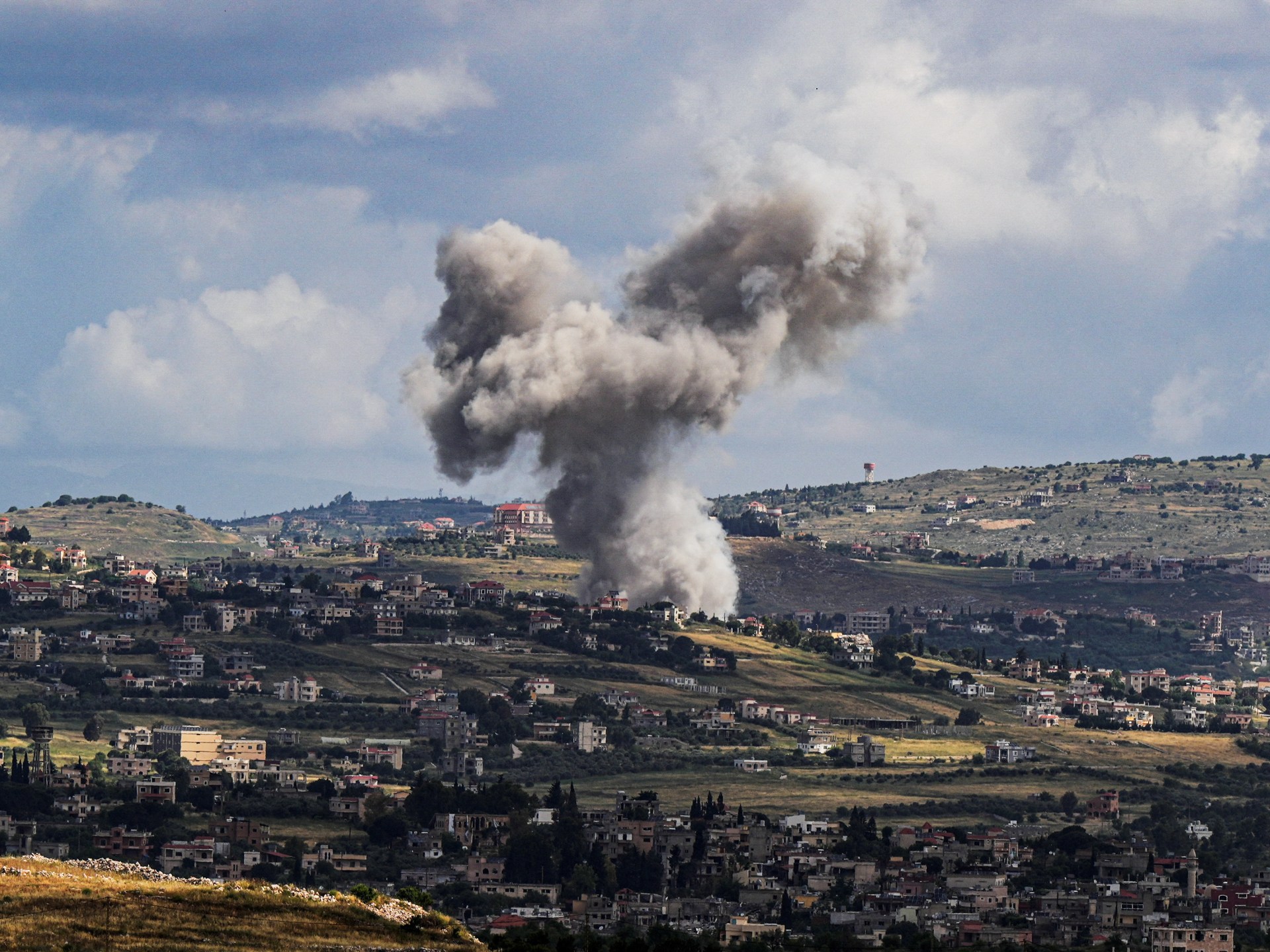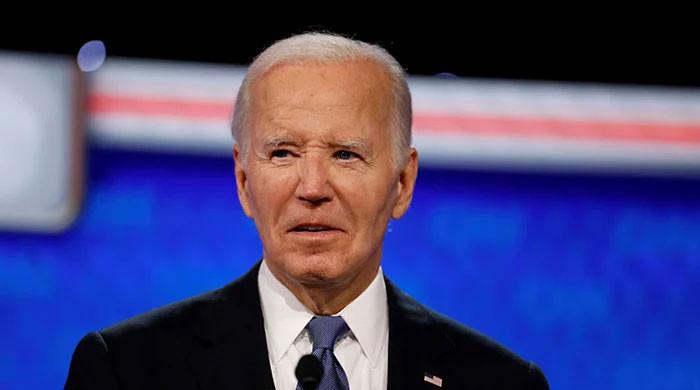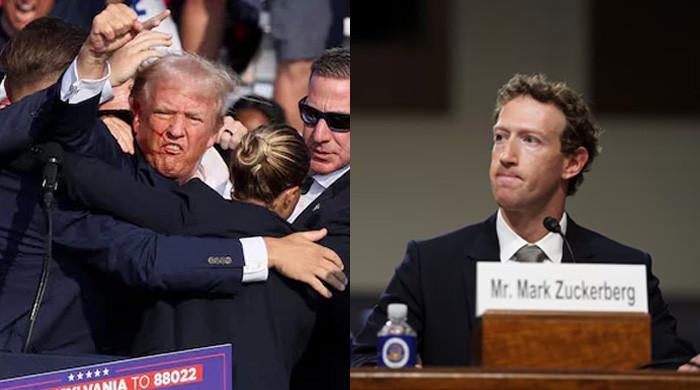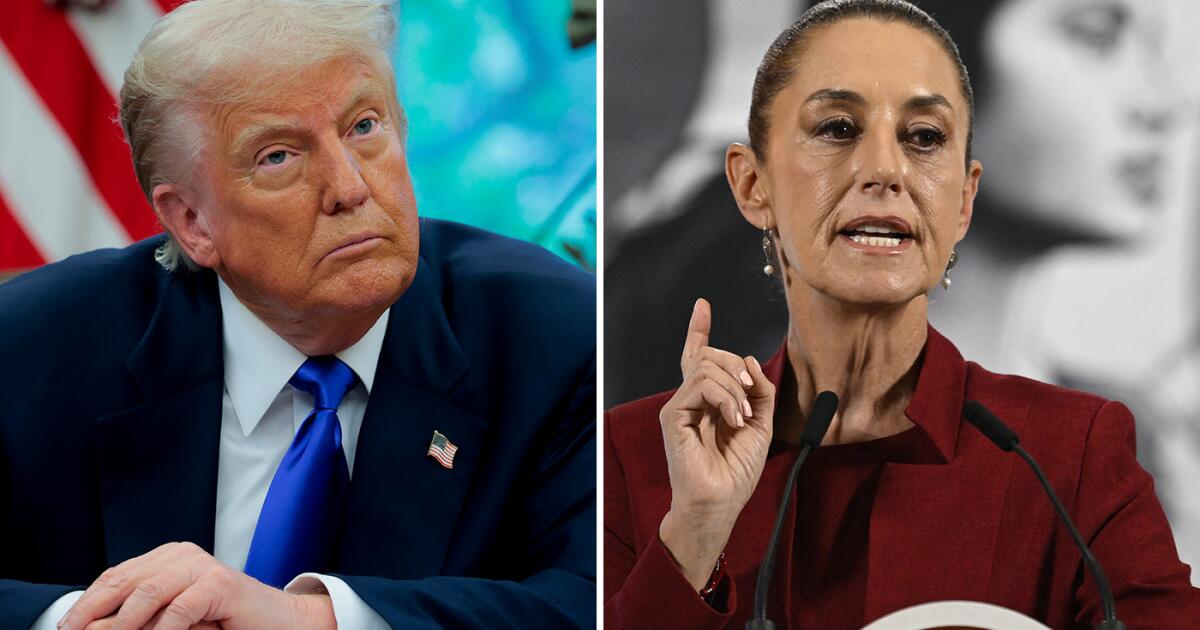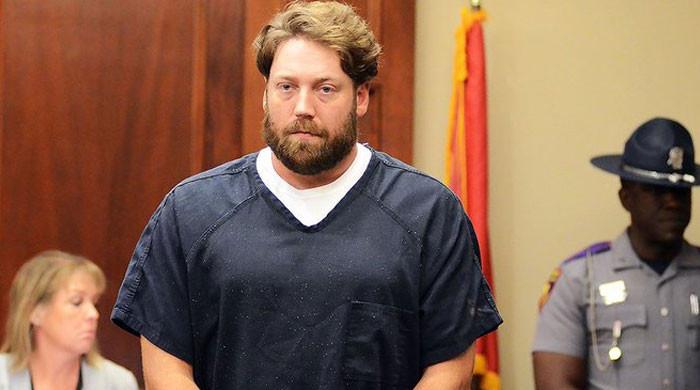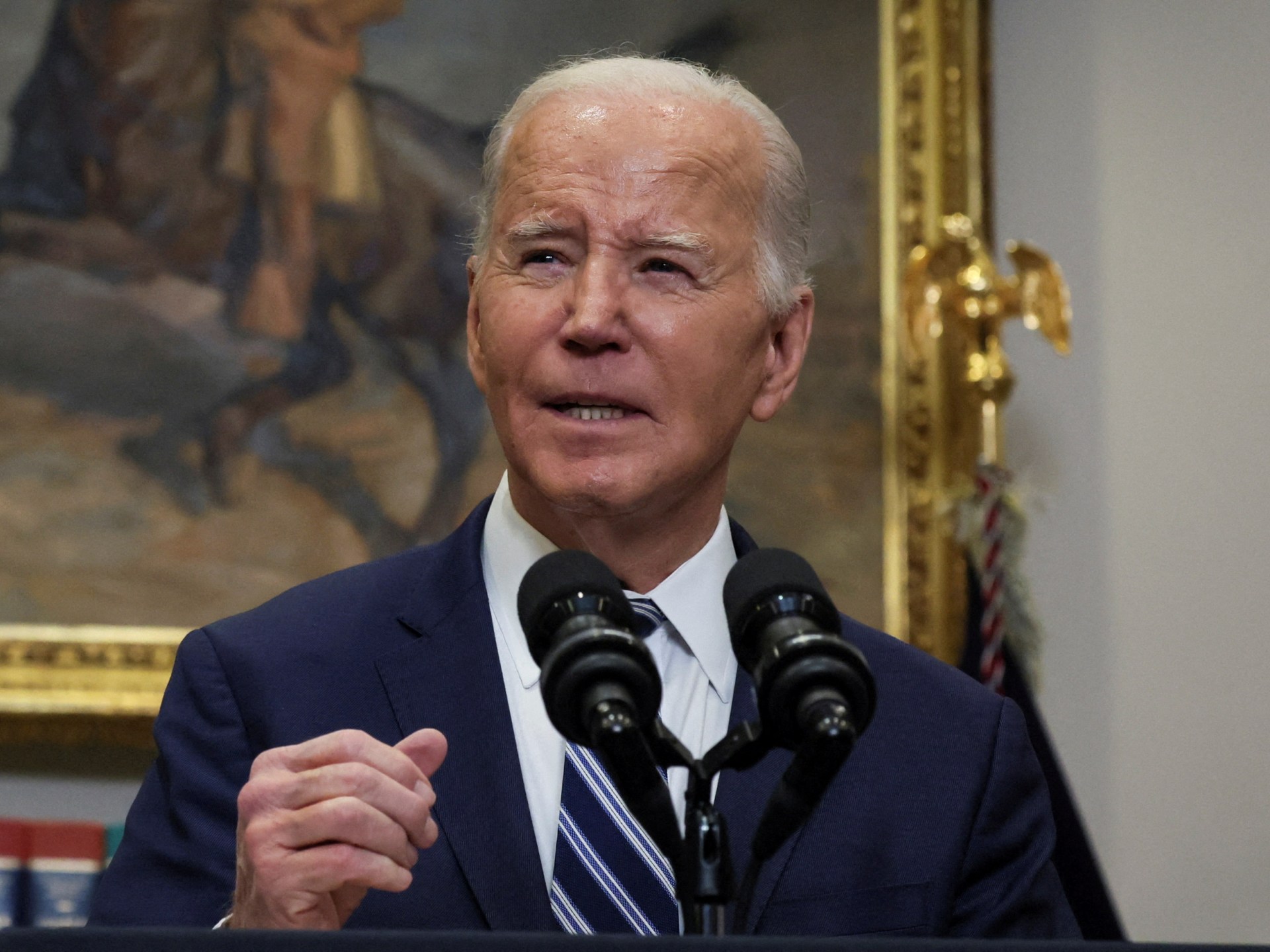The president of France is visiting the Pacific territory where electoral reform plans have caused the worst riots in more than 30 years.
French President Emmanuel Macron has said French soldiers will remain in New Caledonia “as long as necessary” after more than a week of unrest sparked by French plans to change electoral rules in the Pacific island territory.
Macron arrived in Noumea, the capital of New Caledonia, on Thursday amid continuing protests over electoral reforms that the indigenous Kanak people say would dilute their vote and undermine their fight for independence.
The reforms would allow French people who have lived in New Caledonia for 10 years or more to vote in New Caledonia provincial elections.
Some 3,000 soldiers have been sent from Paris since the violence began and could stay until the Paris Olympics, which begin on July 26, Macron said.
Six people, including three young Kanak men, have been killed and some 280 people arrested since protests broke out and a state of emergency was declared.
Macron held a minute of silence for those who had died and said that if roadblocks and barricades were removed, he would oppose extending the state of emergency.
The French president also met on Thursday with the pro-independence president of the Government of New Caledonia, Louis Mapou, and with the president of Congress, Roch Wamytan, in a meeting at the residence of the French high commissioner in New Caledonia, in Noumea.
Macron flew about 17,000 kilometers (10,500 miles) from mainland France to reach Noumea and was expected to stay in New Caledonia for about 12 hours.
Protesters waving New Caledonian flags lined the streets as the French president's convoy moved along the newly reopened highway from the international airport to Noumea.
“I don't know why people who don't even live here are discussing our fate,” said Mike, a 52-year-old Kanak at a roadblock north of the capital, on the eve of Macron's arrival.
Some 90 barricades set up by protesters had been removed by heavily armed police and paramilitaries, but new barricades were still appearing the night before Macron's arrival, according to the Reuters news agency.
Jimmy Naouna of New Caledonia's Kanak and National Liberation Socialist Front (FLNKS) said the pro-independence political party had called on protesters to remove roadblocks and urged Macron to abandon the electoral reform plan.
“We hope so [Macron] “If he travels to Kanaky, he will make a strong announcement that he will withdraw this electoral bill, but if he comes here just as a provocation, that could go wrong,” Naouna said before the French president's arrival, using the indigenous name of the island. .
Kanaks make up about 40 percent of the just over 300,000 people who live in New Caledonia, which lies between Australia and Fiji in the Pacific Ocean.
In 1998, France agreed to cede the territory more political power and limit voting in New Caledonia's provincial and assembly elections to those who were residents of the island at the time, under the so-called Noumea Agreement.
Around 40,000 French citizens have moved to New Caledonia since 1998, and the changes expand the electoral roll to include those who have lived in the territory for 10 years.
The Noumea Agreement also included a series of three independence referendums, the last of which took place in December 2021, at the height of the COVID-19 pandemic. The vote was boycotted by pro-independence groups, who supported remaining in France, and rejected the result.
Last week, French Interior Minister Gerald Darmanin told France 2 television that Azerbaijan, along with China and Russia, were “interfering” in New Caledonia.
“I regret that some of the Caledonian independence leaders have reached an agreement with Azerbaijan,” Darmanin said.

